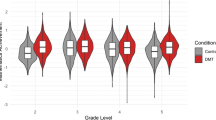Abstract
Decisions on admissions to university and placement into university courses are usually based on the results of achievement (as in secondary school exams) and/or aptitude (in intelligence-type tests and SAT). This paper argues that in a situation where educational provision at secondary school level is highly unequal, a third approach to testing offers an alternative which is preferable both on grounds of theory of cognitive psychology and because it yields much better discrimination.
The Alternative Admissions Research Project at University of Cape Town has developed a mathematics test according to the dynamic testing approach as advocated by Miller (1990) for admission of African students from grossly under-resourced schools, as well as for placing these and other students into a diversifying first year curriculum. This approach aims to assess the ability of a candidate to learn from authentic academic material within the test. This paper focuses on the reasons for the development of the mathematics test and the process by which the test questions were developed and piloted. The reliability of the test and correlations of this test with subsequent mathematical performance data are discussed.
Following the encouraging data for the test as an admission mechanism, the value of the dynamic testing approach for furnishing additional information for placement into an increasingly varied curriculum at first year level was investigated. This enabled the piloting of more topics and more comprehensive validation of this type of testing. The paper concerns itself with the reliability and predictive value of each of the topics in this placement test for a range of core courses in various faculties and the extent to which these tests can identify potentially at risk students who should be placed onto an appropriate curriculum.
Similar content being viewed by others
REFERENCES
Auchter, J. C., Sireci, S. G. and Skaggs, G.: 1987, Technical Manual of the Tests of General Educational Development. American Council on Education, Washington.
Academic Development Programme, University of Cape Town: Annual report 1994.
Blagg, N.: 1991, Can We Teach Intelligence? A comprehensive evaluation of Feuerstein's Instrumental Enrichment Programme. Lawrence Erlbaum Associates, Hillsdale NJ.
Broadfoot, P.: 1992, ‘Towards profiles of achievements: Developments in Europe’ in Examinations: Comparative and international studies, Eckstein, M. A. and Noah, H. J. eds., Pergamon Press, Oxford.
Buckle, C. F. and Riding, R. J.: 1988 ‘Current problems in assessment — Some reflections’, Educational Psychology 8, pp. 299–307.
Conradie J. and Frith, J.: 1994, ‘Comprehension tests in Mathematics’, Departmental Research Report no 174, Department of Mathematics, University of Cape Town.
Edusource data news. Education Foundation, Craighall.
Feuerstein, R., Rand, Y., Jensen, M. R., Kaniel, S. and Tzuriel, D.: 1987, ‘Prerequisite for assessment of learning potential: the LPAD model’, in Lidz, C. S. (ed) Dynamic Assessment: An Interactional Approach to Evaluate Learning Potential, Guilford Press, New York.
French, S.: 1985, ‘The weighting of examination components’, The Statistician 34, 265–280.
Janvier, C.: 1978, ‘The interpretation of complex Cartesian graphs representing situations — studies and experiments’, unpublished Doctoral Thesis, Nottingham.
Jawitz, J.: 1995, ‘Performance in first-and second-year engineering at UCT’. South African Journal of Higher Education 9(1) (May).
Mathonzi, E. N.: 1988, Black Matriculation Results: A Mechanism of Social Control, Skotaville, Johannesburg.
Miller, R.: 1990, ‘Student selection’. Conference Proceedings: Educational Development in South African Universities: Is an Intermediate Tertiary College the Solution? University of Natal.
Moulder, J.: 1991, Facing the Educational Crisis: A Practical Approach, Heinemann, Johannesburg.
Nasson, B. and Samuel, J.: 1990, Education: From Poverty to Liberty, David Phillip, Cape Town.
Stoker D. J. et al: 1985, Investigation Into Different Entrance Requirements for Tertiary Educational Institutions, Report WS-32, Human Sciences Research Council, Pretoria.
Vygotsky L. S.: 1978, Mind in Society: The Development of Higher Psychological Processes, in Cole M., John-Steiner V., Scribner S. and Souberman E. (eds), Harvard University Press, Cambridge, Mass.
Yeld, N and Haeck, W. H.: 1995, ‘Educational histories and academic potential: Can tests deliver?’ Conference 17th Annual conference of the Language Testing Research Colloquium: Validity and Equity Issues in Language Testing, Long Beach, California.
Author information
Authors and Affiliations
Rights and permissions
About this article
Cite this article
Haeck, W., Yeld, N., Conradie, J. et al. A DEVELOPMENTAL APPROACH TO MATHEMATICS TESTING FOR UNIVERSITY ADMISSIONS AND COURSE PLACEMENT. Educational Studies in Mathematics 33, 71–91 (1997). https://doi.org/10.1023/A:1002974021690
Issue Date:
DOI: https://doi.org/10.1023/A:1002974021690




